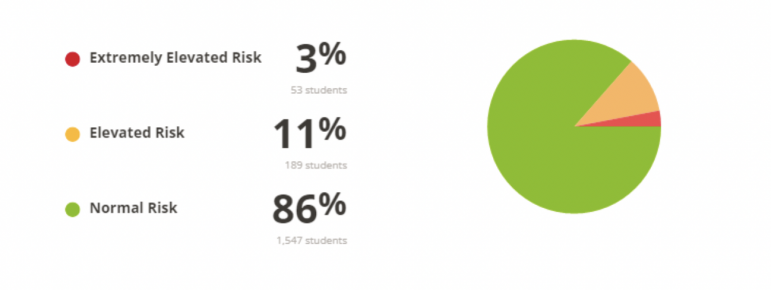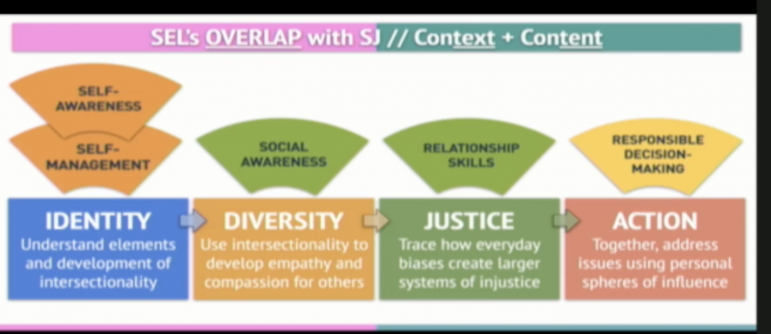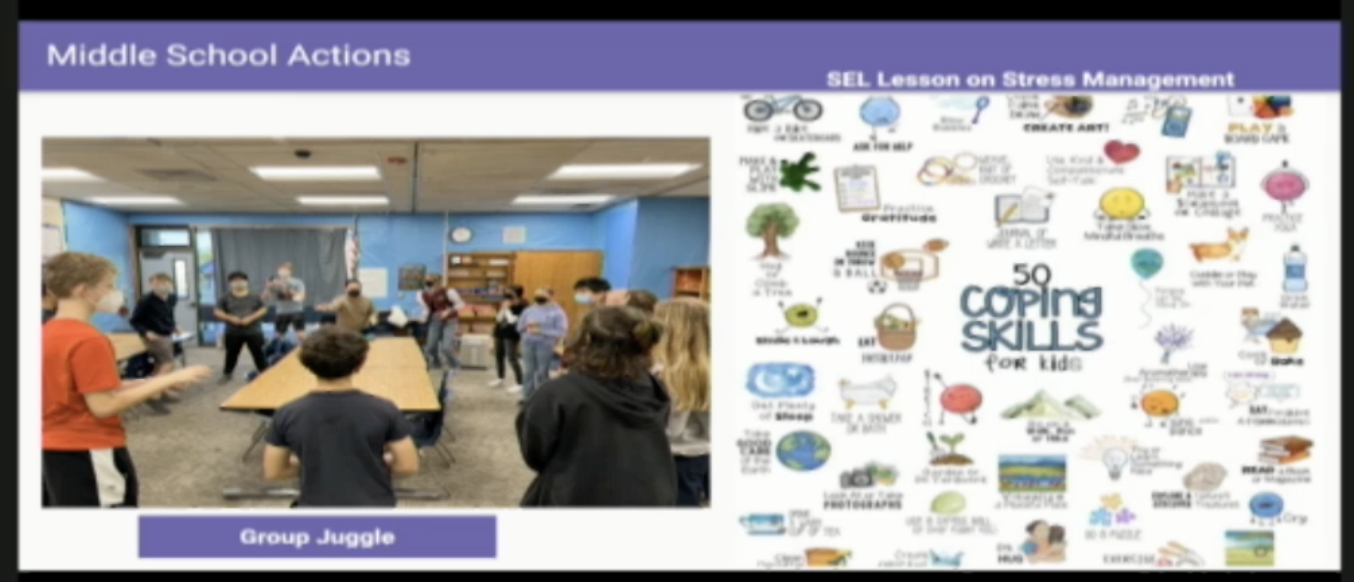In a follow-up to last fall’s report on the social-emotional health of students in grades 3 – 12, school district administrators told the Board of Education last Wednesday night that the results of its latest assessment administered in late January/early February showed that district-wide results remain unchanged and fell within normal parameters. However, Assistant Superintendent Cheryl Wozniak and principals noted that schools were aware that some students whose results fell in the green or “normal risk” range were having challenges and they outlined the range of responses the district — particularly its counseling and special assignment teacher staff –was taking to address student wellbeing across the board.

The BASC-3 Behavioral and Emotional Screening System (BESS) is a universal screener that measures “internalizing risk” such as social stress, anxiety, depression, and sense of inadequacy; “self-regulation risk” such as hyperactivity and attention problems; and “personal adjustment risk” such as relations with parents, interpersonal relations, self-esteem, and self-reliance. PUSD has screened students three times during the pandemic — spring 2021, fall 2021, and most recently in late January/early February 2022. Fewer students completed the assessment this winter — 1,789 vs. 1,861 — a drop that PHS Principal Adam Littlefield noted was due in large part to fewer high school seniors taking the survey.
Speaking on behalf of the three elementary schools, Wildwood Principal Carol Cramer said knowing who the kids are who need help has been an important and useful aspect of the BESS screener, which does not anonymize results. Because of that, school administrators and their counseling teams are able to reach out to families and students directly to offer them support. Piedmont Middle School Principal Ryan Fletcher echoed Cramer’s comments, and also noted the extra work the counseling teams have had to absorb as a result of this personalized effort. Littlefield told the board that because the assessment is capturing only a moment in time, at the high school some students who appear as “elevated” risk are sometimes ultimately assessed as just having a bad day. Conversely, he said, some students at the high school who are actively working to avoid talking to an adult may not be answering the questions truthfully, and referrals to the Wellness Center are sometimes declined.
Hayley Marie Adams, who teaches English at PHS and is a “TSA” — teacher on special assignment — told the board about efforts underway to incorporate social justice understanding alongside overall social and emotional wellbeing.

After hearing from the district administrators, Board President Cory Smegal reiterated the board’s commitment to supporting ongoing work to support the social emotional health of all students and asked the principals to make sure it remained a budget priority going forward. At the end of last year the board unanimously approved a plan for a one-time “expanded learning opportunities” grant of approximately $1.5 million to address student learning loss and social and emotional needs due to the pandemic.
